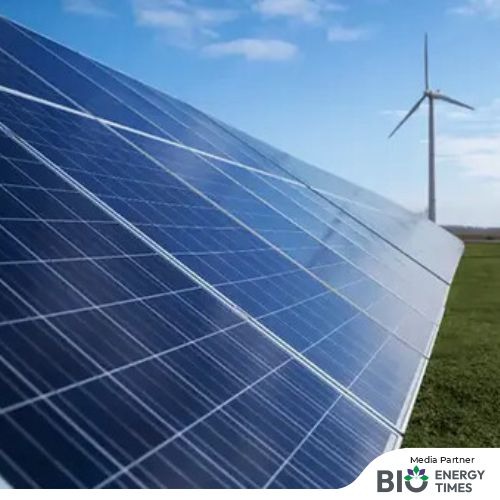Tamil Nadu is positioning itself as a regional leader in clean energy by proposing the creation of a South Asian Renewable Energy Corridor, aimed at delivering round-the-clock renewable power. The initiative was announced by the state’s Minister for Transport and Electricity, S. S. Sivasankar, during the 6th International Energy Conference and Exhibition held in the capital on Tuesday.
“Together with Sri Lanka and other regional partners, Tamil Nadu stands ready to serve as the gateway for renewable energy,” the minister said, underlining the state’s commitment to fostering international cooperation in the clean energy space.
As part of its ambitious energy transition strategy, Tamil Nadu plans to add 10,000 MW of solar and 2,000 MW of wind power capacity over the next five years. “With our strong solar potential and long coastline, we are creating synergies between solar, wind, and storage to deliver reliable, round-the-clock renewable power,” Sivasankar added.
Highlighting the state’s leadership in wind energy, the minister noted that Tamil Nadu currently has the highest installed wind capacity in India. The state is actively enhancing this capacity through repowering older turbines, developing new hybrid wind-solar parks, and strengthening the wind energy ecosystem with policy support. Notably, Tamil Nadu became the first state in the country to launch a Wind Repowering Policy in 2024.
In addition to wind, the state is advancing a wide range of renewable energy policies. It is the second Indian state to roll out a Pumped Storage Policy (2024) and a Small Hydel Policy (2024), with an Integrated Renewable Energy Policy currently under development.
To improve renewable integration and reduce energy curtailment, Tamil Nadu is also investing in battery energy storage systems (BESS) and smart grid infrastructure. The minister revealed that a 500 MW/1000 MWh BESS project is underway, with commercial operations expected by December 2026. Additionally, tenders will soon be floated for a 375 MW/1500 MWh BESS and a 30 MW/90 MWh Solar+BESS project.
Sivasankar emphasised Tamil Nadu’s open-door approach to private investment, global collaborations, and R&D, especially in advanced wind turbine technologies and offshore wind platforms. The state aims to build India’s first offshore wind ecosystem along its coastline and is actively inviting foreign direct investment (FDI) and supply chain partnerships.
The state already boasts a mature manufacturing ecosystem, producing 500 MW of wind blades and turbines annually, and 3,000 MW of solar panels and wafers, making it a key player in India’s renewable energy value chain.
“By working together, we can energise economies, empower communities, and truly engage in a pathway towards a net-zero future,” the minister concluded.
With over 20 GW of installed renewable energy capacity, including more than 10 GW from wind power alone, Tamil Nadu remains a front-runner in India’s clean energy transition. It was also the first Indian state to introduce wind energy banking, a move dating back to 1990.














